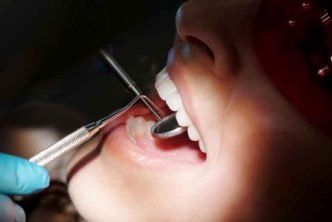Tinnitus is a condition that’s chronically misunderstood, with medical professionals considering whether or not it stems from the nervous system, much like a migraine or other headache, and if the noise can indicate an issue more severe than an annoying ringing or other tinnitus symptoms. Just as importantly, doctors consider how patients can combat tinnitus and its symptoms, and whether a treatment will be effective.
For many people, tinnitus is a particularly aggravating condition. The constant ringing, buzzing, and other tinnitus symptoms can quickly irritate patients, even leading to side effects like nausea or dizziness. This condition might not be curable, but tinnitus patients can certainly manage it with the right treatment plan.
1. Medications

No prescription can instantly cure tinnitus, but patients can manage its symptoms with certain medications. Some patients might need to treat an underlying condition like migraine, anxiety, or depression, which can be relieved with medications. Alternatively, certain tinnitus sufferers may turn to natural supplement options like Tinnitus 911.
With natural ingredients like hibiscus, Hawthorne berry, and niacin, tinnitus symptoms like buzzing or ringing in the ears will be a thing of the past. As a bonus, supplements like these can benefit brain function, improving memory, focus, and other processes, and a dietary supplement is often less expensive than prescription medicines, too.
If your medication requires a trip to the pharmacy, you’ll find a resource like USA Rx invaluable. With discounts on prescription medications for everyone—at any age, with any insurance (or lack thereof), and any citizenship status. Saving funds on essential medicines will make it that much easier to manage your tinnitus symptoms or other conditions, making sure you can afford the treatment you need. Regardless of whether that prescription can combat the root cause of tinnitus, it just might offer a better quality of life, with fewer tinnitus symptoms.
2. Therapy

Mental health treatments like psychotherapy can often relieve tinnitus symptoms. Some health professionals suggest that tinnitus might have origins in psychological or psychiatric disorders. In contrast, others note that patients with tinnitus face a lower quality of life—including mental health symptoms—due to the unwanted sounds haunting them.
Therapy is a natural solution to either case, treating a potential cause or side effects of tinnitus. If you suspect stress or a mental health condition might be causing or exacerbating your tinnitus issues, or you’re struggling with symptoms of depression or other mental health concerns due to the symptoms of tinnitus, therapy might be vital to combat your symptoms.
3. Intervention
If your doctor notes an underlying condition may be causing your tinnitus, they may offer medical interventions like surgery, assistive devices, or other treatment options. Earwax removal, for example, can relieve tinnitus caused or exacerbated by wax buildup. Similarly, hearing aids may be recommended to improve symptoms if your audiologist suspects hearing loss may be the cause of tinnitus you’re dealing with.

Other underlying causes of tinnitus can be managed with professional intervention, too. Certain blood vessel conditions might affect your tinnitus, meaning surgery or a prescription could be enough to ease your symptoms. Or, if a tinnitus patient is struggling after taking a particular medicine, their doctor may suggest adjusting or switching that prescription to help combat tinnitus and its symptoms.
You may not be able to cure tinnitus, but there are many medical treatments and self-help options to help ease your symptoms. With a bottle of Tinnitus 911, a prescription or adjustment to existing treatment, and a qualified therapist, your tinnitus symptoms can be significantly more manageable. Even better, though, these treatment options might even improve your cognitive function in the process, easing your symptoms and reducing the not-so-appealing sensations of tinnitus.





